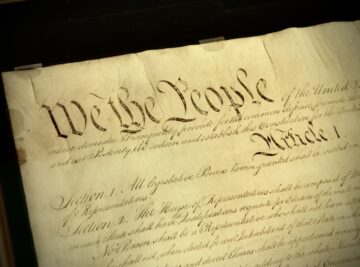by Akim Reinhardt
 I belong to a credit union. It's been fifteen years since I kept my money in a for-profit bank.
I belong to a credit union. It's been fifteen years since I kept my money in a for-profit bank.
Nearly one-third of Americans also belong to credit unions, and for most of us, the reason is obvious: for-profit banks suck. They nickle-and-dime you to death, looking for any excuse to charge fees. And that makes perfect sense. After all, banks aren't designed to do you any favors. They're designed to make money off of your money.
Credit unions, however, are non-profit cooperatives. So they're not out to fuck ya. People who keep money with them are shareholders, not targets of exploitation. And when a credit union does charge fees, the reason and amount always seem sensible, to me at least. So not only do I keep my money in a credit union, I also took a home mortgage with one and run my credit card through one.
The financial meltdown of 2008 only reinforced my decision to avoid for-profit banks at all costs. As profiteering financial institutions hit the skids, and were either bailed out with public money or put down altogether, the credit union industry was relatively unscathed by comparison. Reasonable regulations and responsible banking practices ensured that most credit unions never gambled away their shareholders' money.
In fact, no retail (a.k.a. consumer or natural person) credit union, the kind that operates like a bank for regular people, has ever been bailed out with taxpayer money. Ever. Furthermore, compared to banks, only a fraction of retail credit unions went under, although it should be noted that the financial meltdown did substantially damage the wholesale (a.k.a. corporate or central) credit union industry, which offers investments and services to the retail credit unions, not their patrons.
Fewer fees and peace of mind are nice perks, to be sure. However, there are certain disadvantages. One inconvenience that plagued me for several years has to do with the relatively sparse physical presence of credit unions, compared to the monstrous for-profit banks that loom large on the landscape; it seems you can't spit without hitting one of the latter, while the former is far less ubiquitous.
With fewer branches and outlets, credit unions can't offer nearly as many automated tell machines as do the big boys. Of course the credit union would never charge me for using someone else's ATM. Again, they're not looking for excuses to screw me over. But the non-credit union ATMs that I did occasionally use invariably charged me for using their machine.
So to avoid fees, I had to take care to make withdrawals only from the relatively few credit union ATMs, none of which were near my home. Either that, or I had to suck it up and pay the piper.
Fortunately, my credit union came up with a solution. They cut a deal with 7-11. As a result, I can withdraw money with my credit union ATM card at any of their stores and pay no fees. And it just so happens that there are two 7-11s within a few blocks from my home.
Read more »


